Working together towards a library in every primary school

A library is not just about books. It is about study skills, about life chances, and ultimately about an increase in the whole country’s Gross Domestic Product.
Giving children of primary school age access to books, a library or reading space is the ideal foundation for building confidence and capabilities which will open up opportunities for them as they grow.
The importance of designated reading spaces
The Primary School Library Alliance aims to transform 1,000 school libraries by 2025. However their 2022 report revealed that over 750,000 children did not have access to a school library. The same report cited the 2021 British Land Report which showed that helping all children to learn to read for pleasure would increase their skills – and ultimately their incomes – sufficiently to boost UK GDP by £4.6 billion per year within a generation.
This has led the Alliance to seek to solve this urgent issue and chronic lack of investment, with their campaign for the ‘Future of Primary School Libraries’. The campaign defines four criteria for a successful primary school library space. They are:
- A wide range of diverse books, regularly refreshed
- An attractive, engaging library space to capture pupils’ imaginations
- Trained, skilled staff managing the library or reading space
- The library at the heart of the wider school community
These criteria provide both short- and long-term benefits. For example, a dedicated space encourages a desire to read, while offering a variety of books helps with faster development of literacy skills. By including non-fiction books covering curriculum subjects and other topics, children can support their own learning and read about their personal interests – helping to increase their knowledge and build study skills for later.
Having books available is one thing. Providing space and time to read them is another. A quiet area for reading makes reading aloud less daunting, and helps build reading confidence. Having skilled staff to manage the library or reading space provides invaluable support and encourages greater use of the space.
Lastly, placing the library at the heart of the school community can build engagement and usage, and ensure the benefits of reading are available to the whole school.
As a recent Reading Cloud blog explained, creating a ‘buzz’ around a library launch is a great start. And that library is a great start in life for the children who use it, to begin developing their knowledge, confidence and skills.
The bigger picture: libraries and The Reading Framework
The purpose of the recently updated Department for Education Reading Framework was outlined by Rt. Hon. Nick Gibb MP, the Minister of State for Schools. It is to ensure ‘children become fluent and engaged readers at the very earliest stages…[to] create a virtuous cycle where children learn how to read early, our curriculum gives them the knowledge of the world they need to understand what they read, and they are motivated to read more and learn more.’
You can, of course, lead a primary school child to a book but you can’t make them read it. What you can do is encourage them, through various strategies outlined in the Framework:
- adults reading aloud regularly
- informal book talk, including
- recommendations from peers and adults
- encouraging library use
- providing time to read
- sociable reading environments, reading together and sharing books.
A library management system such as Reading Cloud can make it easier to successfully implement these strategies. For the students, it provides tools which promote independent learning – such as book suggestions, a chat function, and the capability to create book reviews. For the school, by enabling the more effective management of resources, and reporting on usage and inventory, it supports the full library services cycle.
This kind of school library software system is key to supporting the Primary School Library Alliance to succeed in its mission ‘to transform 1,000 libraries and reading spaces by 2025’. It can also play a major role in enabling teachers and leaders to adopt the strategies of the Department for Education Reading Framework.
Most importantly, it is part of the movement throughout primary education to provide all primary school children with access to books and quiet spaces to read them in; to provide skilled staff to manage the libraries; and to place the library at the heart of the school community.
A library in your primary school is essential for the children and for their future. Whatever the available budget, space and other resources, the solutions are out there – and you can read more for yourself about our primary school library software, here.
Ready to transform your school library?
Don’t miss out on the opportunity to elevate your students’ library experience. If you’re not yet part of the Reading Cloud family, now is the perfect time to find out more about what we can offer your school. Book a no obligation demo with one of our expert Sales team today and discover how Reading Cloud can transform your school library.

